THE ETHICAL DIMENSIONS OF SPACE SETTLEMENT
THE ETHICAL DIMENSIONS OF SPACE SETTLEMENT
THE ETHICAL DIMENSIONS OF SPACE SETTLEMENT
You also want an ePaper? Increase the reach of your titles
YUMPU automatically turns print PDFs into web optimized ePapers that Google loves.
vegetarian groups 27 . Many of thesearguments can be contained within anethical system variously calledzoocentrism, zootic individualism orextensionism. If regarded from thestandpoint of the Principle of Utility—thatmorality involves maximising happinessand minimising suffering—then individualconsciousness becomes the basis ofintrinsic value. Whilst the debate over thenature of animal consciousness continues,few would deny that “higher” animals atleast have feelings and are capable ofpleasure and pain. Animals are subjects ofa “biographical life” 28 .A zoocentrist would thus assign intrinsicvalue to animals that are consideredsentient (a somewhat ill-defined value set)and would claim the same moral standingfor them as for humans. The adoption ofzoocentrism as our environmental ethicwould require us to treat animals more likepeople. Exploiting animals for food,medicine, science, or degradingentertainment would be immoral and wewould have to strive to uphold animal aswell as purely human welfare.Zoocentrism though assigns no intrinsicvalue to “lower” organisms, and inanimateobjects. These remain of instrumentalvalue to animal-kind. Looking out intospace, we have so far seen nothing ofintrinsic value to the zoocentrist. Ifcolonising space and terraforming Marswould be of benefit to conscious existence,then—to the zoocentrist as well as theanthopocentrist—it would be a right andproper thing to do.EcocentrismEcocentrism (also known as biocentrism)is claimed by its proponents to be the firsttrue environmental ethic since it is basedon holistic principles. To the ecocentrist,all life is sacred and has the right to existand flourish. The living world itself hasintrinsic value: not just at the level ofindividual organisms, but also theecosystems of which they are a part 29,30 .Humans are not regarded as a superiorspecies 31 , but as just one part of thisgreater whole—“plain biotic citizens” is aterm often used—with no right to assertthemselves over and above the will ofnature. Moral behaviour within this systementails serving the welfare of life as awhole: following a Principle of Respectfor Life, often defined as, “… preservingthe integrity, stability and beauty of thebiotic community. 29 ” Since humans haveno privileged place within this community,ecocentrists urge that we dismantle ourenergy and resource-intensive civilisation,reduce our population, and adopt a simplerlifestyle in harmony with nature.Since ecocentrism subordinates the rightsof the individual to those of an holisticabstraction, it has been criticised as amisanthropic and totalitarian ideology 32 .This is not without some justification, asmuch of the progress in ethics over thepast few centuries has involved theextension of individual rights—many ofwhich ecocentrism would require us toabandon. However, much of this criticismonly fully applies to the more extremeversions of ecocentrism. Half the humanpopulation, big though it is, cannot beallowed to starve, however much thismight suit the abstract purposes of thebiosphere. This really would be immoral.The original “Land Ethic” of Leopold hasthus been interpreted by some to meansomething more akin to 33 : the survivalneeds of humans outweigh the survivalneeds of non-humans, but the survivalneeds of non-humans outweigh the nonsurvivalneeds of humans. An ethic such asthis stands not too far removed from some“enlightened self-interest” versions ofanthropocentrism.Vast and fuzzy though the expanded set ofrights holders within ecocentrism is, thesystem still does not assign intrinsic valueto inanimate objects. Life is the basis ofvalue: planets and the rocks they are madeof provide an instrumental stage withinwhich life can play out its destiny. Thus,despite ecocentrism’s hostility towardshuman technology, space settlement andterraforming are not necessarily immoralwithin an ideology such as this. In factquite the contrary: maximising thediversity of life is one of the principles of5


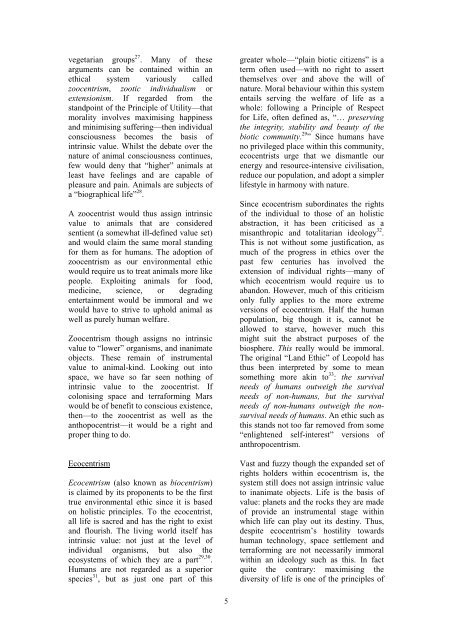
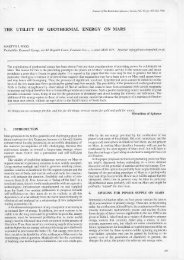
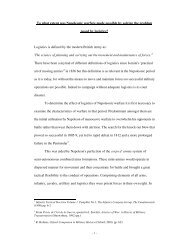
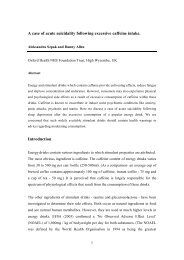
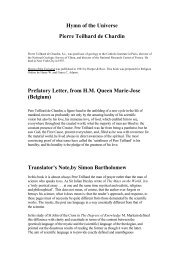
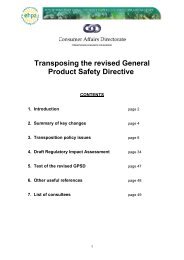
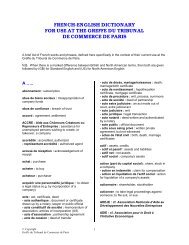
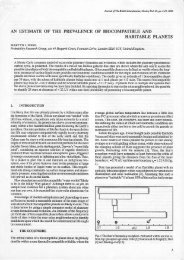
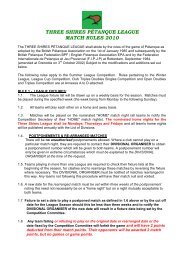
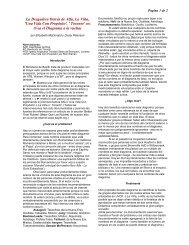
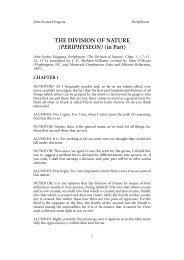
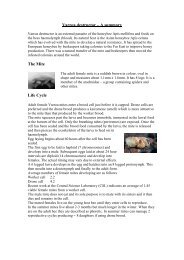
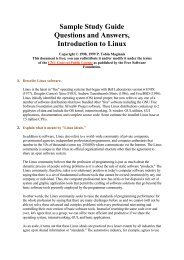
![Tibetan Herbal Medicine Core Curriculum [PDF]](https://img.yumpu.com/32594566/1/184x260/tibetan-herbal-medicine-core-curriculum-pdf.jpg?quality=85)
